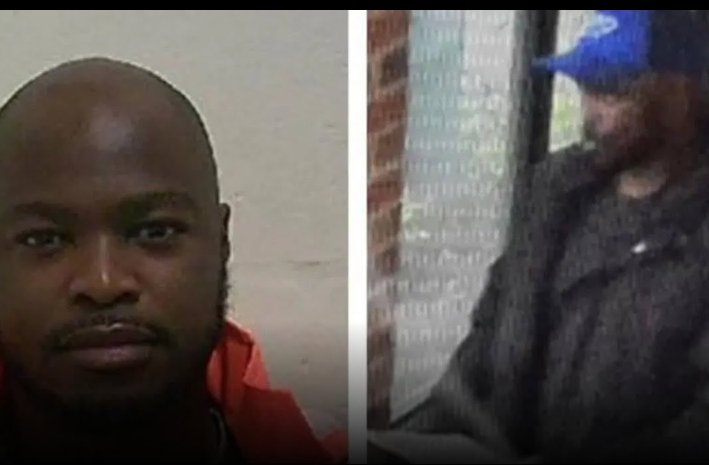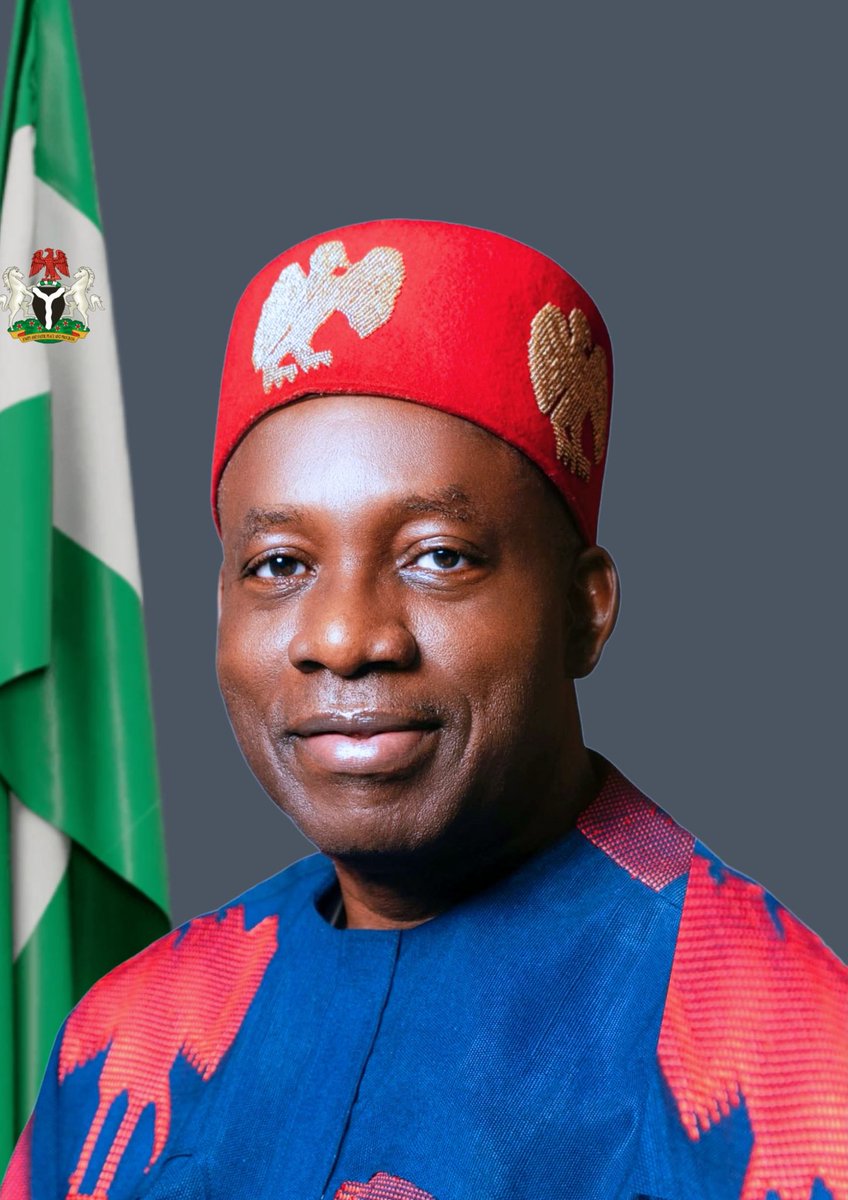
“President Trump Is Very Serious, Don’t Test Him” — U.S. Lawmaker Riley Moore Cautions Nigerian Government, Urges Embrace of U.S. Partnership

In what appears to be one of the strongest warnings yet from Washington regarding Nigeria’s ongoing insecurity crisis, U.S. Congressman Riley Moore has called on the Nigerian government to cooperate fully with the United States in tackling the country’s growing wave of terrorism. Speaking from Washington, D.C., the lawmaker stressed that President Donald Trump is “very serious” about his position on Nigeria and that his administration should not be underestimated.
Riley Moore, who represents West Virginia’s 2nd Congressional District in the U.S. House of Representatives, issued this stern caution during a media briefing in the American capital, where he addressed the escalating violence against Christians in Nigeria and the broader threat of terrorism spreading across the nation. According to Moore, the current situation has drawn the attention of the U.S. government at the highest level, and President Trump’s commitment to confronting religious persecution globally is unwavering.
“President Trump is very serious about this,” Moore stated emphatically. “I’m asking Nigeria to do the right thing, partner with the United States, help us to protect the Christians in your country and we will help you.” His words carried a tone of urgency and diplomatic weight, underscoring the renewed determination of the Trump administration to engage more directly with Nigeria on matters of security, religious freedom, and human rights.
The comments come amid intensifying global concern over the continued attacks on Christian communities and the general deterioration of safety in parts of Nigeria, particularly in the Middle Belt and northern regions. Reports of villages being overrun by armed groups, churches set ablaze, and innocent civilians being killed have sparked outrage from international human rights organizations and faith-based groups across the United States and Europe.
Congressman Moore, who serves on the powerful House Appropriations Committee and has long been an advocate for international religious freedom, noted that the United States views Nigeria as a strategic partner in Africa. However, he warned that continued inaction or resistance from the Nigerian authorities could strain diplomatic relations and hinder future cooperation. “This is an opportunity for Nigerians to strengthen and deepen their relationship with the United States,” Moore said. “We want to see Nigeria thrive as a democratic partner, but that can only happen when the government takes firm, transparent steps to confront the forces of terror threatening its citizens.”
His remarks come just days after the Trump administration reaffirmed its intention to support international efforts aimed at combating religious persecution and global terrorism. Nigeria, which has long battled extremist groups like Boko Haram and Islamic State West Africa Province (ISWAP), remains one of the countries most affected by these threats. The resurgence of attacks, especially those targeting rural Christian populations, has once again drawn international attention and concern from U.S. lawmakers and Christian advocacy organizations.
Moore’s statement also follows increasing chatter within Washington about the need for a recalibrated approach to U.S.–Nigeria relations. While the two nations have historically enjoyed a cooperative partnership—particularly in trade, defense, and education—Washington’s tone has shifted in recent months. Analysts believe the renewed pressure stems from America’s frustration with what it perceives as Nigeria’s slow response to violent extremism, corruption, and human rights violations.
For many observers, Moore’s words signal that President Trump’s administration is preparing to adopt a more assertive foreign policy posture toward nations where religious minorities face persecution. The Congressman’s choice of words—“Don’t test him”—has sparked intense debate on social media, with political analysts and Nigerians alike interpreting it as both a warning and an invitation. Some view it as an opportunity for the Nigerian government to rebuild trust with Washington, while others see it as a subtle threat that U.S. patience is running thin.
Over the past decade, successive U.S. administrations have provided Nigeria with billions of dollars in humanitarian aid, military training, and intelligence support. However, persistent allegations of corruption, weak governance, and the misuse of military resources have cast a shadow over the partnership. Moore’s statement appears to echo a growing sentiment within the U.S. Congress that more accountability is needed from Nigeria’s leadership if the country wishes to remain in Washington’s good graces.
The issue of Christian persecution has particularly galvanized American conservatives, faith-based organizations, and lawmakers who have urged the Trump administration to take firmer action. Many of them see Nigeria as a key battleground for the defense of global religious freedom. Moore, who has often spoken out on such issues, emphasized that the United States stands ready to assist Nigeria—but only if the partnership is met with sincerity and decisive action from Abuja.
“I want Nigerians to understand that we’re not here to control, we’re here to cooperate,” he said. “But when we see innocent people being slaughtered, when we see children and women living in fear because of who they worship, we cannot stay silent. America stands for freedom, and we want our friends in Nigeria to join us in upholding that principle.”
The Congressman’s remarks have drawn mixed reactions both in Nigeria and abroad. Supporters of stronger U.S.–Nigeria ties hailed the comments as a necessary push for accountability and reform. However, critics argue that Washington’s increasing involvement could be seen as meddling in Nigeria’s internal affairs. Some Nigerian officials, speaking anonymously to local media, expressed caution, noting that while partnership with the U.S. is welcome, Nigeria must be treated as an equal sovereign nation and not a subordinate in international relations.
Nonetheless, Moore’s comments have reignited a broader conversation about the future of Nigeria’s security architecture and the role of international allies in addressing its crises. The call to “embrace U.S. partnership” is not new, but the renewed emphasis from a prominent member of Congress—and the invocation of President Trump’s personal commitment—suggests a turning point in diplomatic messaging.
In recent months, the U.S. government has also been vocal about the need for Nigeria to reform its security agencies, protect journalists, and ensure the rights of all citizens regardless of faith or ethnicity. Human rights groups have urged the Nigerian government to improve transparency and prosecute those responsible for violence, regardless of their background.
As tensions rise and international attention sharpens, Riley Moore’s statement serves as both a warning and a window of opportunity. The Congressman’s insistence that “President Trump is very serious” underscores that Washington’s patience is wearing thin with empty promises and stalled reforms. Whether the Nigerian government will seize this moment to deepen cooperation and rebuild trust remains to be seen.
For now, one thing is clear: the world is watching Nigeria, and Washington’s message could not be louder. The call for partnership has been made—firmly, publicly, and with unmistakable intent. What happens next will determine not only the future of U.S.–Nigeria relations but also the fate of millions of Nigerians who continue to hope for peace, protection, and a government that will finally rise to the challenge.


